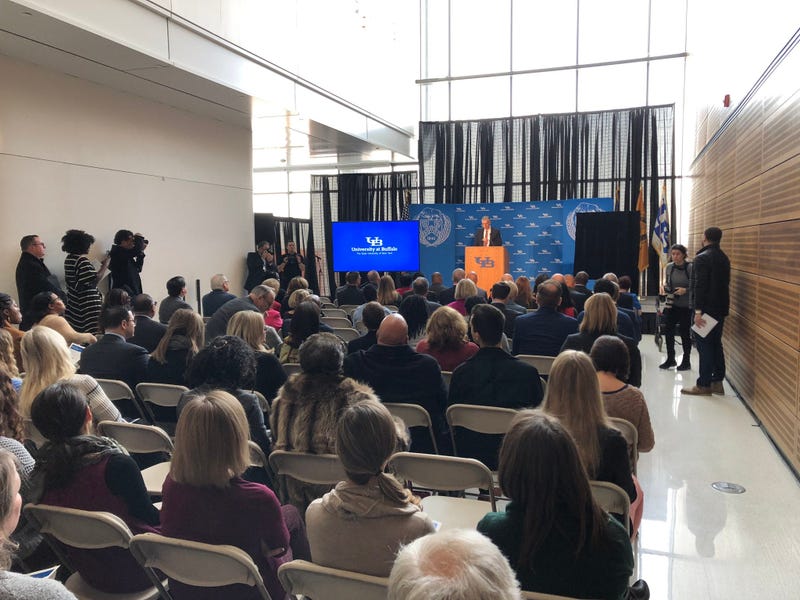
BUFFALO (WBEN) - "The announcement of the Community Health Equity Research Institute is the difference between life and death," said Mayor Byron Brown.
This past Sunday, while they were watching the Bills game, Brown and his wife received the dreaded call that no family wants to hear - her 53-year-old brother had died from a heart attack.
"Later that day, the family gathered and talked about their family history and supported each other, and it came out that my wife's father...died at the same age - 53," Brown continued. "For far too long, African Americans across our nation, our state, our region and right here in Buffalo have suffered from the devastating impacts of racially-based health disparities."
However, Murphy noted that these problems cannot be solved by simply focusing on health because many of the factors linked to poor health outcomes aren't necessarily directly related to the human body. For example, education and economic standing are two of the determinant factors of health, as they often dictate what kind of lifestyle one would live.
"We soon discovered that we could not possibly address the health crisis in our community without addressing the inequalities and inequities in education, housing, economics, criminal justice and the environment," said Reverend George Nicholas, who serves on the African American Health Disparities Taskforce.
Nicholas explains that it's up to the University to lay out and build up the necessary staff to carry out the work, and for his taskforce, he says it's their responsibility to make sure this topic remains at the forefront of conversation throughout the region. This could present quite the challenge considering the vast nature of the Institute combined with the fact that health inequity on Buffalo's East Side will not be a simple overnight fix, but rather a generational shift that needs to begin at the grassroots level.
"The next step is really to hold each other accountable for really addressing the issues at the root level," said Nicholas. "I'm not saying that it will, but any time you do something within a big operation like a university, the mission can kind of get lost and things of that nature. It's very important for us that we keep the issue around health equity at the center of this work."
